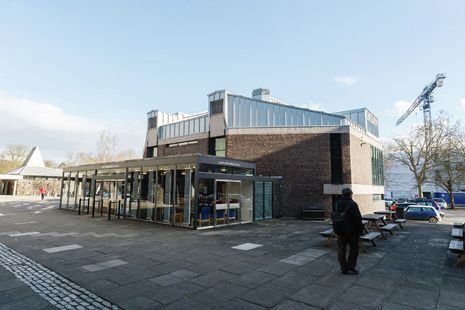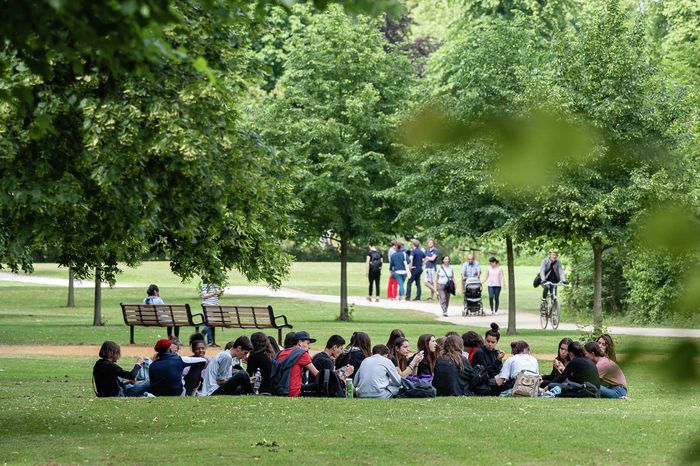Lectures are optional so give us the recordings
Katie Nicholson argues that faculties must make some changes if they expect students to attend lectures regularly

My first lecture at Cambridge was spent sitting on the floor squeezed between the rest of my cohort in a room clearly overwhelmed by the unexpected turnout. Ambitions were high; everyone was ready to throw themselves into every aspect of their degree. By the following week, the room was empty.
Whilst I was happy that I now had a seat, the dichotomy between my situation in the previous lecture and the bench I was now sharing with just two others was stark. The next week I didn’t go. I’m unsure how many people continued to attend the lectures for that module, but I can only imagine it declined. After all, they were optional. The week one ambition was dead, and the seemingly optional nature of lectures had taken over.
“Lectures come at the bottom of the priority pile”
No one was checking our attendance; the module was assessed online, and you could take as many attempts as needed till you passed. Admittedly, the lectures for the examined modules were much better attended, but even then, weeks could be missed without anyone noting my absence.
Supervisions act as a check that work is actually being done by students, so channelling effort into them at the cost of lectures seems to make sense. Getting through a humanities supervision is doable without knowledge from the lectures, but would be impossible if no further reading or research had been undertaken. Work, at least in the humanities, just isn’t reliant on lecture attendance. If anything, supervisions take priority; the small groups make it difficult to hide a lack of knowledge, and skipping them is significantly harder given there is someone who will notice your absence. But should this be the case?
Students should be granted a life beyond lectures, but does this need to come at the cost of lecture attendance? Lectures can be a social space, a way to meet others in your cohort outside of your college, but there are other ways to socialise and get the most out of university. Balancing socialising, extracurriculars, and the unavoidable work of supervisions usually means something will give way. Lectures come at the bottom of the priority pile; at the start of the year time is available for attendance, but this soon vanishes.
“The week one ambition was dead, and the optional appearance of lectures had taken over”
Lectures aren’t always relevant to the supervision work and, when given a choice of topics in the exam, may not even help with what you will be examined on. Whilst some lectures can be inspiring, reminding me why I chose this degree, highlighting areas of study I am interested in or opening my eyes to new interests, others turn into one long monologue, a PowerPoint audiobook. When lecture slides are available online, with the bulk of information accessible from my room, dragging myself to the lecture is not only a challenge but seems a waste of time – especially when coming from a college outside of the city centre.
All this reinforces the idea that lectures are optional. They can support your study but aren’t essential, and time can be better prioritised to fit around students. However, the lack of lecture recordings provided by faculties serves as a reminder that missing lectures can deprive you of knowledge and discussion given by the lecturer in person. Even if the PowerPoint seems to be a script, not going means you won’t know what is being said in your absence, what valuable teaching you are missing out on. I’ve been to lectures I easily could have skipped without it being any detriment to my work, but equally, some lectures have been essential to understanding certain themes and topics.
Making lecture recordings widely available would only help students. Lecture attendance is already seen as, and is implied to be, optional, and there would still be incentives to go to lectures, even if just to socialise and escape your college walls. Recordings would aid revision and mean students could catch up on anything they had missed, whether by choice or necessity. Not releasing these recordings to the entire cohort damages learning as opposed to incentivising attendance.
Much of Cambridge’s academic structure is rigid; supervisions are unavoidable, and the workload does limit free time. In an attempt to claim some time for themselves or other activities, the sacrifice of lectures is predictable, and the university does little to prevent this. Lectures are optional and the inevitability of this, whether student or university-led, is unavoidable. Week one begins with students eager to attend every aspect of their degree’s teaching, but as the term progresses this declines. Under intense academic pressure, flexibility isn’t an indulgence but a necessity; one lectures bare the brunt of.
 News / Downing Bar dodges college takeover31 January 2026
News / Downing Bar dodges college takeover31 January 2026 Fashion / A guide to Cambridge’s second-hand scene2 February 2026
Fashion / A guide to Cambridge’s second-hand scene2 February 2026 Comment / College rivalry should not become college snobbery30 January 2026
Comment / College rivalry should not become college snobbery30 January 2026 Lifestyle / Which Cambridge eatery are you?1 February 2026
Lifestyle / Which Cambridge eatery are you?1 February 2026 News / Deborah Prentice overtaken as highest-paid Russell Group VC2 February 2026
News / Deborah Prentice overtaken as highest-paid Russell Group VC2 February 2026









